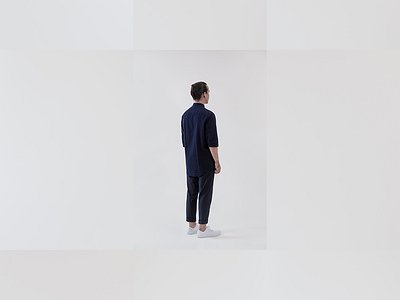Name: Efraín Rozas
Occupation: Interdisciplinary artist
Nationality: Peruvian
Recent release: Efraín Rozas's Still is out via Futura Resistenza.
Recommendations: The birth of Tragedy by Nietzsche. I think it’s one of the most important books written in our era.
If you enjoyed this Efraín Rozas interview and would like to find out more about his work, visit his official website. He is also on Instagram, Facebook, and Soundcloud.
Can you talk a bit about your interest in or fascination for sound and what sparked it?
I think rhythm was the key for me … its capability of transmitting inner emotions.
The rhythm we find in the displacement of our emotions, a change of mood, a transition to happiness or sadness
What have been some of the most beautiful/intriguing sounds you've heard and some of the most beautifully/intriguingly sounding places you've been to?
Lima is between de desert and the ocean. Probably a silence after a big noise … when things come to place
The human voice is one of the first sounds we are exposed to, even before we understand the exact meaning of words. Are you, too, interested in voices and language, the rhythm of speech, the timbres of different voices – and do you think these qualities find their way into your sound work?
Definitely. I am interested in the rhythm and intensity of the way humans transmit emotions through voice and body language.
There can be very deep/high/loud/quiet/grating/delicate sounds and many more. Are there extremes in sound you are particularly interested in - and what response do they elicit in you?
The moment when a loud or long sound comes to an end, and then something sounds again. That interstice.
Deep listening, audiowalks, meditation, listening with both eyes closed, and the like can sharpen our sense of hearing – which techniques or experiences have worked for you to create a greater awareness of the sound aspects of music and our environment?
I meditate every day … the contemplation of our inner world is very useful and I recommend it to everyone
Where do you find the sounds you're working with? How do you collect, and organise them?
On the album, it was just a single sound, a single note, G, from a Moog slim phatty synth. I was fascinated by it and I made the whole album with it
Over the course of your development, what have been your most important instruments and tools?
An attitude of exploring any instrument trying to listen to my relationship with life.
Could you describe your creative process on the basis of one of your sounds, pieces, or live performances that's particularly dear to you, please?
For this album, I used the Covid lockdown as an opportunity to have long periods of silence.
As a percussionist I did this excercise of hitting a drum with more and more silence between each hit every day. Slowing the metronome more and more everyday. I tried to be synchronized with the metronome with really long silences
In relation to sound, one often reads words like “material”, “sculpting”, and “design”. Do you feel these terms have a relationship to your own work of and approach towards sound? What are the “material” qualities of sound?
The materiality of what one feels when an emotion changes inside of us.
Harmonic progressions and melodic development has often been described as a play with tension and release, with repetition and variation. When working with sound, what guides your decisions?
On this album, I explored using only one note, G, and silence. No harmony no melody. No tension no release.
Acoustic ecology, the biophony, and even the acoustics of public places have drawn a lot of attention. How important is sound for our overall well-being and in how far do you feel the "acoustic health" of a society or environment is reflective of its overall health?
Sound feels very similar to feelings of our life. It’s nice to work on our feelings using sound.
Tinnitus and developing hyperacusis are very real risks for anyone working with sound. Do you take precautions in this regard and if you're suffering from these or similar issues – how do you cope with them?
Yes I try to avoid loud sounds and use ear plugs in loud situations.
Very specific sounds can be considered as pleasant – as in ASRM – or extremely disagreeable – as in Misophonia. Do you have any experience with this and ideas on the relation between certain sounds and strong emotional responses?
I do avoid unpleasant sounds. I try to be generous with the audience. I think volume can be a tool to use harsh sounds in beautiful way. No need to be too loud.
I prefer to transmit emotions in a subtle way. It’s like a bad horror movie … it’s easy to scare you if somebody screams at you out of nowhere. I don’t enjoy that.
We can surround us with sound every second of the day. The great pianist Glenn Gould even considered this the ultimate delight. How do you see that yourself and what importance does silence hold from your point of view?
Silence is one of the most important things I think. Inner silence. To confront our real tasks I’m life. To be responsible.
We can listen to a pop song or open our window and simply take in the noises of the environment. In which way are these experiences different and / or connected, do you feel?
Everything has its moment.




